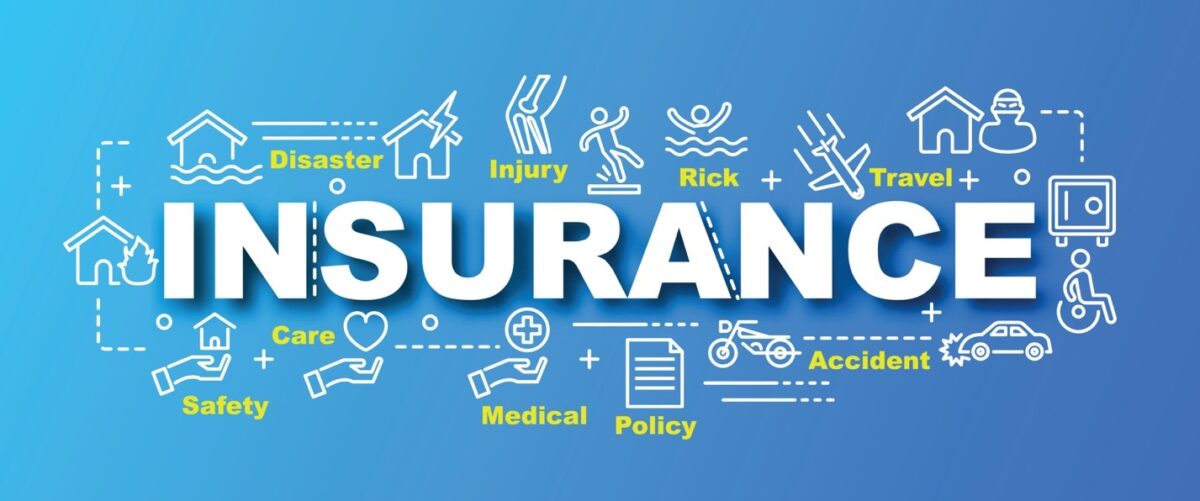Table of Contents
- Overview
- Policy are inactive (lapse)
- Claims Not Covered by Clauses
- Filing a Claim Beyond the Specified Time
- Incomplete Claim Documents
- Being in a Waiting Period
- The Disease had Already Emerged Before the Policy Were Implicated
- Claim Submission Includes Exception
- Policyholder Breaking the Law
- Committing Insurance Crimes
- Limit Has Been Exceeded
- The Conclucion
Overview
The complexities involved in managing insurance claims can be a significant burden for policyholders. This complexity often contributes to the hesitation to purchase insurance policiesInsurance policy An agreement between the policyholder and the insurance company to perform the obligations as agreed by both parties., whether it’s for health, vehicles, or travel. Nonetheless, the challenges in processing these claimsClaim The demands are given by the insurance policyholder to get the right properly so that the insurer pays the conditions according to the existing procedure. are not unfounded. They are rooted in the contractual agreement between the insurerInsurer A person who is legally listed in the insurance policy to make premium payments for that policy. and the policyholder, which is legally enforceable, ensuring that claims are not dismissed without just cause.
The following are the reasons for the rejection of Insurance claims:
Denied Insurance Claims No.1
InsuranceWhat.com
PolicyPolicy The policy is a binding agreement and is agreed upon by the insurance company and policyholder in writing. An agreement made by the policyholder with an insurance company. are inactive (lapseLapse Premiums that are not paid beyond the grace period can invalidate the policy (the effective period of the policy stops).)
An insurance policyInsurance policy An agreement between the policyholder and the insurance company to perform the obligations as agreed by both parties. may become inactive for various reasons, a condition also known as a lapse. If a policy has lapsed, the insurance company is not obligated to pay out claims. Below are two scenarios in which a policy lapse can lead to the rejection of an insurance claimInsurance claim A formal request made to the insurance company for compensation based on the terms of the insurance policy or agreement..
- Insurance premiumPremium The money that must be paid at a certain time is the obligation of the insurance policyholder. The amount of premium paid is determined by the policy and approval of the insurance company in accordance with the conditions of the insured. The nominal payment approved by policyholders and insurance companies. Premium payment will be made according to the agreement, it can be monthly, yearly, or according to the agreement. payments become overdue once the grace periodGrace period The time period after the premium due date where the premium can still be paid without being subject to interest and the policy can still be accounted for. The term used to describe the grace period given to policyholders for 30 days from the due date of payment. The deadline was given by the insurance company to the policyholder to pay the agreed premium. expires. Different insurance policies may have varying grace periodsGrace period The time period after the premium due date where the premium can still be paid without being subject to interest and the policy can still be accounted for. The term used to describe the grace period given to policyholders for 30 days from the due date of payment. The deadline was given by the insurance company to the policyholder to pay the agreed premium., typically up to a maximum of 45 days. Should an incident occur after this period, the insurance company will not cover any losses incurred by the policyholder, even if the policy terms include such events. It is crucial to pay the insurance premium punctually, or at the very least, before the grace period concludes.
- When an insurance policy is structured as a unit-linked plan, it may lapse if the policy’s cash valueCash Value Total money was given by the insurance company to policyholders (cash value). is insufficient to pay for the insurance costs. This shortfall can result from two primary factors: suboptimal investment returns and regular withdrawals. To prevent this, consider contributing additional funds during times of weak investment performance. Moreover, it’s advisable to refrain from making withdrawals unless absolutely necessary due to an emergency.

Denied Insurance Claims No.2
InsuranceWhat.com
Claims Not Covered by ClausesClause The articles contained in the policy agreement that policyholders and insurance companies must comply with.
An insurance policy comprises an agreement detailing the criteria for what is and is not covered under the insurance. In TLO car insurance, the definition of heavy damage may differ between insurersInsurer A person who is legally listed in the insurance policy to make premium payments for that policy., potentially being set at a minimum of 70%, 75%, or even 80%. Therefore, insurance will not cover the cost of damages if they do not meet the specified percentage threshold.
Consider another scenario: the policy defines a stroke as a cerebrovascular attack with permanent neurological effects, persisting for more than 24 hours. Therefore, even if a doctor diagnoses a stroke, if less than 24 hours have passed, filing an insurance claim is futile as it will assuredly be rejected.
Denied Insurance Claims No.3
InsuranceWhat.com
Filing a ClaimClaim The demands are given by the insurance policyholder to get the right properly so that the insurer pays the conditions according to the existing procedure. Beyond the Specified Time
Insurance claims may be postponed or denied if the processing time surpasses the duration stipulated in the policy. Insurers typically set a specific timeframe for managing claims. Beyond this period, claims may be subject to rejection. Car insurance claims require prompt attention due to the brief window allowed, which is merely 3 x 24 hours. In contrast, life insurance claims have a longer processing allowance, ranging from 30 to 60 days.
Denied Insurance Claims No.4
InsuranceWhat.com
Incomplete Claim Documents
It is crucial to be aware of all the necessary documents when filing a claim. Missing even a single document can lead to the rejection of the claim by the insurance company. For instance, life insurance claims require a doctor’s certificate. Additionally, completing a claim form is mandatory.
Ensure you follow the procedure accurately. If you are submitting a car insurance claim, it is crucial to photograph the vehicle’s damage. This image will serve as one of the pieces of evidence when filing your claim with the insurance company.
Next, gather all the necessary documents, including a copy of the insurance policy, the driver’s license, vehicle registration, and the claim submission form. Additionally, a police report may be required in cases of significant damage.
It is crucial to fill out the form with utmost honesty and clarity, as the insurance company will conduct a verification. If the information on the claim form is found to be false, the claim will not be paid.
Another crucial procedure is to undertake repairs at the partner’s workshop. Similarly, treatment should be sought at a hospital that is recommended by the insurance. Repairs or treatments at facilities not listed by the insurance are not permitted.
Denied Insurance Claims No.5
InsuranceWhat.com
Being in a Waiting PeriodWaiting Period The period after the policy is issued in which the insurance policy does not cover the insured’s medical expenses until a certain period. The period when there is no premium payment due to certain reasons.
Many insurance policies include a feature known as a waiting period. During this time, policyholders are unable to submit claims. Specifically for critical illness coverage, the waiting period typically ranges from 30 to 365 days.
Assuming the waiting period is 30 days, and the insurance policy was purchased on February 1, 2015. If the policyholder became critically ill on March 1, 2015, and submitted a claim, it would be rejected by the insurance company because the waiting period had not yet elapsed.
Denied Insurance Claims No.6
InsuranceWhat.com
The Disease had Already Emerged Before the Policy Were Implicated
A policyholder’s claim will be denied if they fail to disclose an illness at the time of purchasing the insurance. Even after the waiting period has elapsed, if it is discovered that the disease was present before the policy was bought, the insurance company will refuse the claim. Therefore, it is crucial to ensure you are in good health when acquiring insurance.
Denied Insurance Claims No.7
InsuranceWhat.com
Claim Submission Includes Exception
In addition to outlining the inclusions of insurance coverage, the policy also specifies exclusions. These are the items not covered by the insurance. For instance, in life insurance, exclusions typically encompass death due to suicide, legal penalties, and criminal activities.
In car insurance, circumstances that may lead to a claim being denied include using vehicles in ways they were not intended for or modifying them without informing the insurance company. For instance, a motorcycle used to carry loads beyond its capacity is an example of a vehicle not serving its intended purpose.
In the context of motor vehicle modifications, it’s crucial to always notify your insurance company and confirm that the modifications are permitted. Avoid non-standard modifications that could lead to accidents, as these may result in the insurance company refusing to cover repair costs.
Denied Insurance Claims No.8
InsuranceWhat.com
Policyholder Breaking the Law
Insurance claims may also be denied if the policyholder engages in illegal activities. For instance, if a person has comprehensive car insurance but has an accident due to reckless driving or traffic infractions, they are ineligible to make a claim. Similarly, claims are not valid if the policyholder drives without a license, parks unlawfully, or is under the influence of alcohol.
Health insurance policyholders cannot file claims if they are seriously injured as a result of being assaulted by a mob during the commissionCommission Part of the premium paid to agents or salespeople in return for policy services performed. of a crime. Insurance policies adhere strictly to the prevailing laws, making it impossible to cover incidents that arise from legal infractions.
Denied Insurance Claims No.9
InsuranceWhat.com
Committing Insurance Crimes
Insurance fraud refers to acts of deception or sabotage carried out intentionally by the policyholder or their beneficiaries to ensure the payment of an insurance claim. This may involve the policy owner inflicting self-harm, setting fire to their property, or deliberately causing an accident to receive insurance compensation.
An insurance company will automatically deny a claim if the investigation reveals that the action was deliberate. Similarly, if the heirsHeir The name of the person listed in the insurance policy as the party receiving compensation in the event of death to the Insured. commit a crime against the policyholder to receive a claim, the company will also reject it.
Denied Insurance Claims No.10
InsuranceWhat.com
Limit Has Been Exceeded
It is a widely accepted principle that the client is king. However, customers cannot make decisions arbitrarily as they must adhere to the rules and regulations established by financial institutions, including those related to insurance.
Every insurance company sets a maximum claim value for deductions. If customers frequently make claims, they may exhaust this limit. Subsequent claims may then be denied by the insurance company.

The Conclucion
Pay Close Attention
Numerous factors can lead to the rejection of insurance claims, and one of the most effective methods to prevent this is to carefully review, analyze, and comprehend the policy details. Often, policyholders overlook this step and consequently suffer financial losses due to their own oversights.
Every policyholder should meticulously examine the conditions that affect the approval of their claim. It is crucial to comprehend every definition and explanation within the policy clauses accurately. Understanding these can be time-consuming due to the complex legal terminology used, which is often challenging for many to grasp. Nonetheless, mastering this knowledge is invaluable when the time comes to submit a claim.
It’s important to steer clear of actions that could result in a claim being denied. If you disagree with the insurance company’s refusal, there are specific organizations that handle such disputes. Policyholders have the option to escalate their cases to the Indonesian Insurance Arbitration Mediation AgencyAgent People who work and are tied to insurance companies to find and serve policyholders. Insurance company employees who are tasked with marketing products or serving prospective customers, starting from submitting the policy provisions to the contents of the policy agreement after becoming a policyholder. (BMAI) or the Consumer Dispute Resolution Agency (BPSK).
Do you think you have other ideas about Denied Insurance Claims: 10 Key Factors You Need to Know? You can comment and share your thoughts below, or discuss more in the InsuranceWhat Forum. Also, read more articles about GLOBAL INSURANCE or other interesting insurance topic articles only at InsuranceWhat.com.






